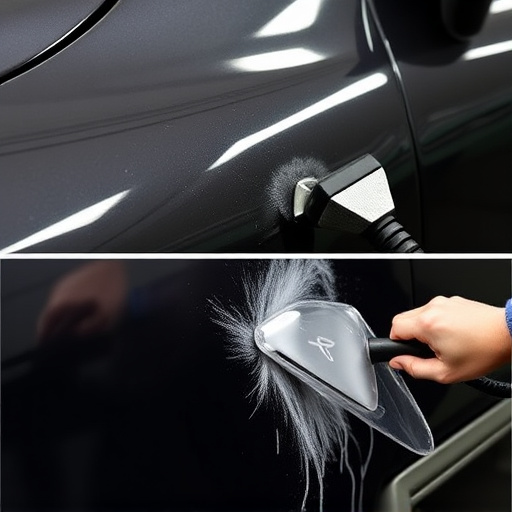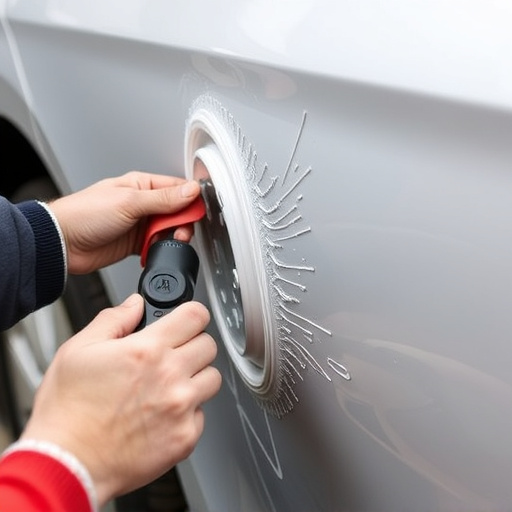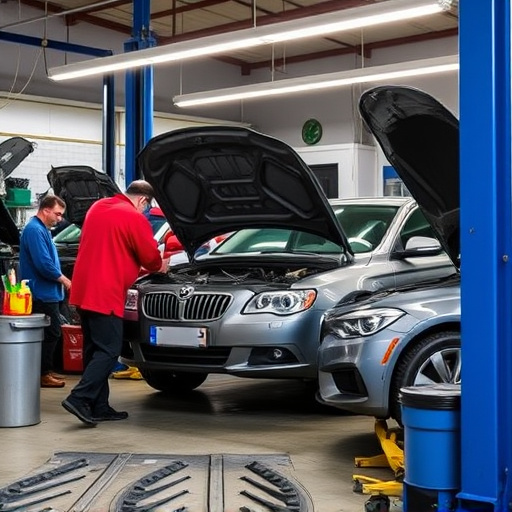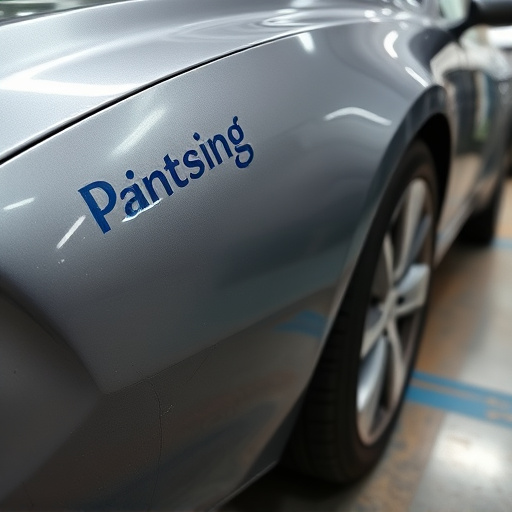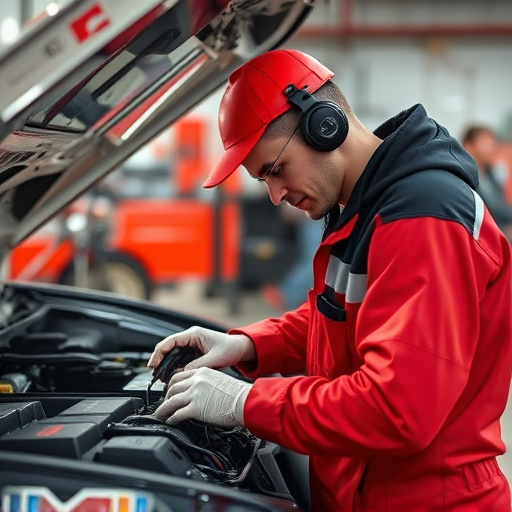Structural repair warranty requirements demand technicians restore and ensure core structure integrity of buildings or vehicles. Comprehensive training on materials, tools, safety protocols and project management is vital. Interactive techniques like simulations and workshops enhance knowledge retention and skill development, ensuring high-quality auto body services and warrantied repairs. Continuous learning with regular updates on materials science, tools, and digital design software is crucial for maintaining collision repair center standards.
In today’s construction landscape, ensuring structural integrity is paramount. Repair technicians play a crucial role in upholding these standards, making them an essential asset with significant responsibilities. This article delves into the training requirements for structural repair technicians, focusing on warranty-backed repairs. We explore the vital components of technician education, effective delivery methods, and the importance of continuous learning to meet industry standards and deliver reliable, warrantied work.
- Understanding Structural Repair Warranty Requirements
- Essential Training Components for Technicians
- Effective Delivery Methods and Continuous Learning
Understanding Structural Repair Warranty Requirements

Understanding Structural Repair Warranty Requirements is a critical step for any repair technician looking to provide quality service and maintain customer satisfaction. A structural repair warranty goes beyond typical cosmetic fixes like car damage repair or auto body repairs; it ensures that the core integrity of a structure, be it a building or a vehicle, is restored and maintained. This involves adhering to specific industry standards and guidelines to ensure the longevity and safety of the repaired item.
For instance, when considering structural repairs, paintless dent repair techniques might not always be applicable or sufficient. Technicians must be trained to assess the depth of damage, understanding that certain repairs require specialized equipment and expertise. By comprehending these warranty requirements, technicians can effectively communicate with clients about expectations, limitations, and post-repair maintenance, fostering trust and promoting long-term customer relationships.
Essential Training Components for Technicians

In order to effectively administer a structural repair warranty, repair technicians must be equipped with a comprehensive understanding of various essential training components. This includes in-depth knowledge of different structural materials, such as metal and composite, along with specialized techniques for their repair. Technicians should also receive hands-on training in using advanced diagnostic tools and equipment to accurately assess damage and determine the scope of work required under the warranty.
Furthermore, training in safety protocols is paramount, given the potentially hazardous nature of structural repairs. This involves learning proper handling procedures for toxic materials, understanding ergonomic practices to prevent injuries, and mastering safe lifting techniques. Training should also cover efficient project management skills to ensure timely completion of repairs while maintaining high-quality standards, which are all crucial aspects of delivering reliable body shop services in a collision center environment.
Effective Delivery Methods and Continuous Learning

Effective delivery methods are paramount in training repair technicians for structural repair warranties. Interactive and hands-on learning approaches, such as simulations, virtual reality demonstrations, and workshops, have proven to be powerful tools in enhancing knowledge retention and skill development. These methods not only provide a safe environment for practitioners to gain experience but also offer opportunities for immediate feedback and corrective actions.
Continuous learning is another critical aspect that cannot be overlooked. The automotive industry evolves rapidly, with new technologies and techniques emerging regularly. Reputable training programs incorporate regular updates and modules to ensure technicians stay abreast of the latest trends in structural repair, including advancements in materials science, innovative tools, and digital design software. This commitment to ongoing education equips them to deliver superior auto body services, maintain high standards at collision repair centers, and ultimately uphold the integrity of car repair shop warranties.
Training is a cornerstone of ensuring effective structural repair warranty implementation. By equipping repair technicians with comprehensive knowledge on warranty requirements, best practices, and continuous learning opportunities, companies can guarantee high-quality repairs, customer satisfaction, and reduced claims. This, in turn, strengthens the overall integrity of the structural repair industry. Remember, proper training translates to more efficient operations, better outcomes, and enhanced reputation for all involved.

